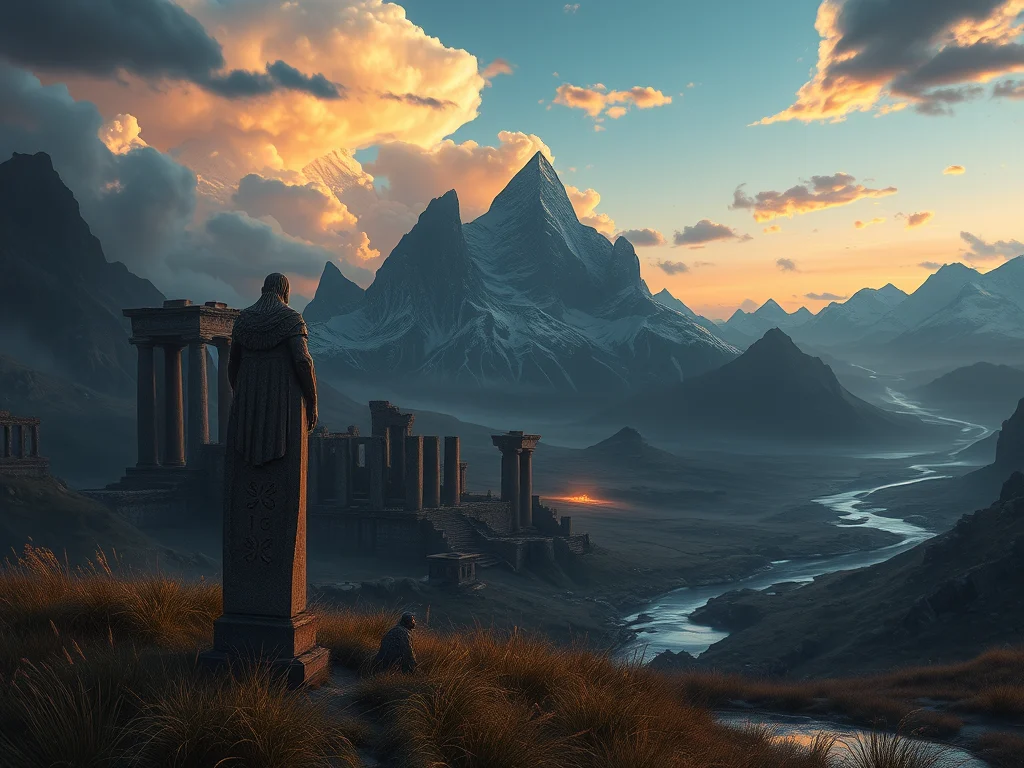Heirs of Promise, Makers of Discord
“The flame that lights the world can also consume it. So it is with man.”
Of all the mortal peoples of Khassid, none are as widespread, as ambitious, or as contradictory as the humans. They are both the youngest and the most prolific of the world’s children—blessed with fervor, ingenuity, and a will that borders on defiance. In a world carved by elder races and forgotten gods, it is humanity that now holds the greatest sway—and bears the greatest burden for the shaping of the current age.
Humanity did not arrive from beyond, as the Barazûn did, nor were they shaped in the dawn epochs like the Syl’Aeris or Varnokh. They emerged from Khassid itself, shaped from the breath of Aeru and the balance of the Four Greater Currents—Air, Earth, Fire, and Water. They were born into a world already in motion, one with histories deeper than they could comprehend. Yet it is their nature not to be daunted by ancient legacies, but to claim their own.
From the early centuries of the First Era, humans multiplied swiftly, settling valleys, forests, plains, and coasts. Their civilizations rose with astonishing speed: city-states, kingdoms, and merchant republics—each reflecting humanity’s gift for adaptation and organization. They learned from the elder peoples, traded knowledge and culture, and even sat at their councils. For a time, it seemed humans might be the great unifiers of Khassid.
But humanity’s ambition bore a sharper edge. Where others sought stewardship, humans often sought dominion. Where the Varnokh tempered strength with honor, and the Syl’Aeris balanced magic with harmony, the great powers of man turned toward expansion, exploitation, and empire.
Perhaps no event more sharply marks the fallibility of human pride than their betrayal of the Barazûn. Coveting the unmatched craft of dwarven smiths and masons, human rulers made demands cloaked in diplomacy, then turned to force when the dwarves resisted. Their betrayal was not born of malice alone, but of entitlement and greed. When the dwarves vanished from the surface in a single night, entire cities suffered economic collapse—and yet, many still cursed the dwarves rather than mourned the broken kinship.
The Cataclysm that ended the First Era—though not solely of human making—was worsened by human overreach. Their wars, their tampering with ancient magics, and their hunger for power had weakened the world’s balance. When fire and storm swept the land, it was as much a reckoning as it was a tragedy.
Now, in the Second Era, humans remain ascendant, yet chastened. Some kingdoms have embraced humility, seeking to right the wrongs of the past. Others cling to old ambitions, blind to the scars they carry. Across Khassid, humans fill every role imaginable—farmers and kings, rebels and scholars, tyrants and saints. They are the flame in the forge: ever-changing, ever-consuming, and full of promise both terrible and wondrous.
Where they go, they shape the land—and are in turn shaped by it. For all their faults, it is humanity’s gift to change, and in that, perhaps, lies their salvation.
